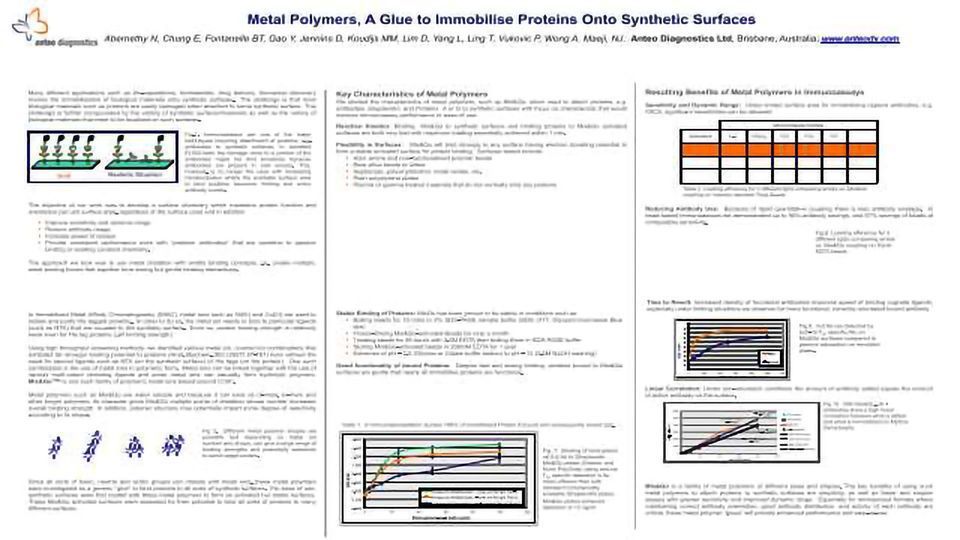Metal Polymers, A Glue to Immobilise Proteins Onto Synthetic Surfaces

Many different applications such as bio-separations, biomaterials, drug delivery, biomarker discovery involve the immobilisation of biological materials onto synthetic surfaces. The challenge is that most biological materials such as proteins are easily damaged when attached to some synthetic surface. This challenge is further compounded by the variety of synthetic surfaces/materials as well as the variety of biological materials that need to be localised on such surfaces.
The objective of our work was to develop a surface chemistry which maintains protein function and orientation per unit surface area, regardless of the surface used and in addition
-Improve sensitivity and dynamic range
-Reduce antibody usage
-Increase speed of assays
-Provide consistent performance even with “problem antibodies” that are sensitive to passive binding or existing covalent chemistry. The approach we took was to use metal chelation with avidity binding concepts, i.e., create multiple, weak binding forces that together form strong but gentle binding interactions.




